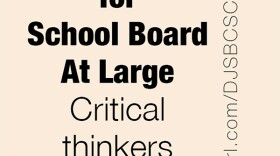This week is framed by two events that seem to be in tension with one another. Monday was Martin Luther King, Jr. Day, and today is the inauguration of the 45th President of the United States, Donald J. Trump. The simmering tension between these two events boiled over in the conflict between Donald Trump and Georgia Congressman and Civil Rights leader John Lewis. That conflict reveals a troubling trend in American culture.
Monday morning I attended the MLK Breakfast at the Century Center and heard Dr. Darryl Heller’s keynote address, which touched on themes such as the strength of community and the importance of empathy. Dr. Heller is Director of our regional Civil Rights Heritage Center. He spoke to a large crowd of community activists, local business leaders, and civil servants, supported by the presence of Mayor Buttigieg of South Bend and Mayor Wood of Mishawaka and by the presence of Senator Joe Donnelly. The gatherers were diverse, and there was a lot of energy in the great hall and a spirit of camaraderie, with smiles and greetings all around.
Like MLK, Dr. Heller emphasized hope. How could one not feel hope for the future among so many committed and motivated participants? But there was no denying that some of our more immediate hopes had been shattered—not because of the political affiliation of our president-elect; there were attendees of all affiliations, and of course many conservatives promote civil rights and the principle of equality under the law. But something was different about this election, and that difference was demonstrated in Donald Trump’s Saturday tweet barrage against Representative John Lewis. Last Friday, Lewis had said that he wouldn’t attend the inaugural because he felt that Trump’s presidency wasn’t legitimate. Clearly, that is a statement to be angry about if you are Trump or one of Trump’s supporters. But no president-elect prior to Trump would have reacted as he did.
I’d wager that you, under similar circumstances, would have reacted differently. First of all, you would realize that it’s really normal for some opponents at the time of the inauguration to continue to harbor hard feelings; and in this case, it isn’t entirely irrational to extrapolate from the intelligence reports about Russian interference in the elections. Secondly, you would, I hope, stop to consider the great gap between the fullness of your power as president and the lesser power of a representative, and therefore show restraint and a degree of empathy, and respect for his dignity and your own. Shouldn’t Trump have seized on John Lewis’s criticism as an opportunity to show that he is large-minded and above taking political opposition personally?
The worst aspect of Trump’s reaction is the example he sets for other people who aspire to positions of power. John Lewis isn’t helpless, but compared to Donald Trump, Lewis is the quiet new kid in fourth grade who is vulnerable to mockery, or the unemployed worker in coal country, or the immigrant who has escaped the killing that destroyed his family, or the young woman trying to make a career in a field dominated by men and their customs. In our society, people on all sides are hurting. We need leaders who can recognize our pain and who will model human respect for even the least among us. That’s what we ask of our president. Learning to sympathize is Trump’s biggest personal challenge.






